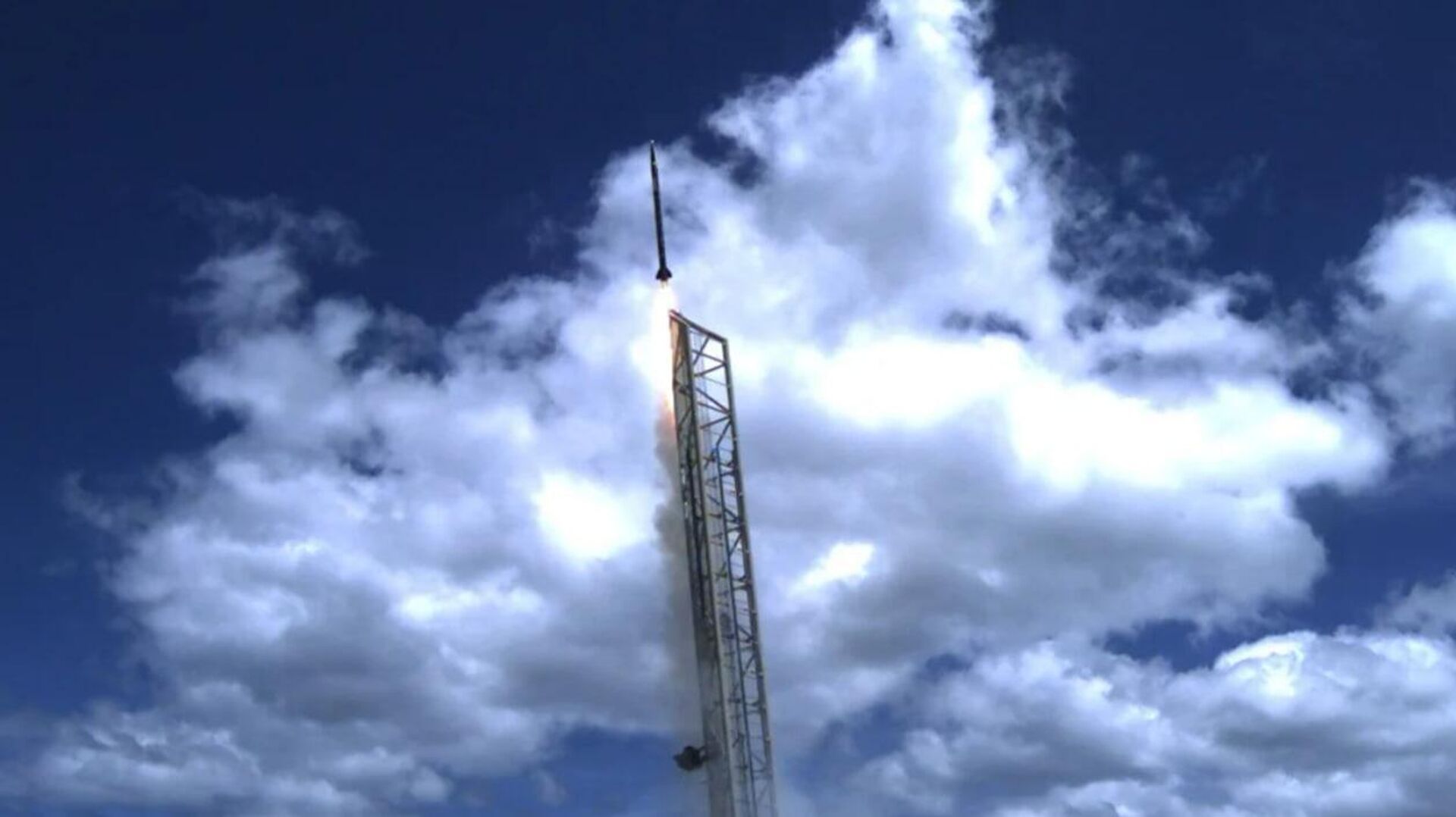https://en.sputniknews.africa/20241214/south-africa-making-strides-in-its-space-program-with-suborbital-launch-facility-test-1069711435.html
South Africa Making Strides in Its Space Program With Suborbital Launch Facility Test
South Africa Making Strides in Its Space Program With Suborbital Launch Facility Test
Sputnik Africa
SANSA is a space agency that promotes research, the development of technologies, and the growth of human capital in the field of space. It focuses on Earth... 14.12.2024, Sputnik Africa
2024-12-14T12:04+0100
2024-12-14T12:04+0100
2024-12-16T13:38+0100
opinion
south africa
southern africa
space
space exploration
development
vehicle
science
engineering
satellites
https://cdn1.img.sputniknews.africa/img/07e8/0c/0e/1069710946_0:0:1260:708_1920x0_80_0_0_d81552a7de67413e8a86e9a7c6c6b91a.jpg
The South African National Space Agency (SANSA), in collaboration with the Aerospace Systems Research Institute (ASRI) – a University of KwaZulu-Natal spinoff focused on developing South Africa's commercial space launch capabilities – successfully tested a new suborbital launch facility at the Denel Overberg Test Range.This state-of-the-art facility, featuring a precision 360-degree launch gantry, supports advanced rocket testing and research, as demonstrated by successful test launches of the Phoenix rockets and a SANSA payload that gathered valuable magnetic field data transmitted via telemetry. This data is expected to significantly boost SANSA's magnetic research and international reputation.SANSA hailed this achievement as a crucial step in building a thriving and sustainable South African space ecosystem, fostering future generations of space scientists.ASRI, funded by the Department of Science, Technology and Innovation, has already designed and launched several suborbital rockets and is developing the Saffire engine to power future suborbital and orbital (CLV) launch vehicles.South Africa's planned 20-meter CLV, powered by nine Saffire engines, will have a 200-500 kg payload capacity for small satellites. ASRI aims to launch from an expanded Overberg Test Range facility by 2028.
https://en.sputniknews.africa/20241213/2024-a-turning-point-for-south-africa-and-africas-role-in-global-politics-professor-says-1069704699.html
south africa
southern africa
space
Sputnik Africa
feedback@sputniknews.com
+74956456601
MIA „Rossiya Segodnya“
2024
News
en_EN
Sputnik Africa
feedback@sputniknews.com
+74956456601
MIA „Rossiya Segodnya“
Sputnik Africa
feedback@sputniknews.com
+74956456601
MIA „Rossiya Segodnya“
south africa, southern africa, space, space exploration, development, vehicle, science, engineering, satellites
south africa, southern africa, space, space exploration, development, vehicle, science, engineering, satellites
South Africa Making Strides in Its Space Program With Suborbital Launch Facility Test
12:04 14.12.2024 (Updated: 13:38 16.12.2024) Ekaterina Shilova
Writer / Editor
SANSA is a space agency that promotes research, the development of technologies, and the growth of human capital in the field of space. It focuses on Earth observation, space science, and operations to support policy, resource management, and national security.
The
South African National Space Agency (SANSA), in collaboration with the Aerospace Systems Research Institute (ASRI) – a University of KwaZulu-Natal spinoff focused on developing South Africa's commercial space launch capabilities – successfully tested a new suborbital launch facility at the Denel Overberg Test Range.
This state-of-the-art facility, featuring a precision 360-degree launch gantry, supports advanced rocket testing and
research, as demonstrated by successful test launches of the Phoenix rockets and a SANSA payload that gathered valuable magnetic field data transmitted via telemetry. This data is expected to significantly boost SANSA's magnetic research and international reputation.
SANSA hailed this achievement as a crucial step in building a thriving and sustainable South African space ecosystem, fostering future generations of
space scientists.
ASRI, funded by the Department of Science, Technology and Innovation, has already designed and launched several suborbital rockets and is developing the Saffire engine to power future suborbital and orbital (CLV) launch
vehicles.
South Africa's planned 20-meter CLV, powered by nine Saffire engines, will have a 200-500 kg payload capacity for small satellites. ASRI aims to launch from an expanded Overberg Test Range facility by 2028.

